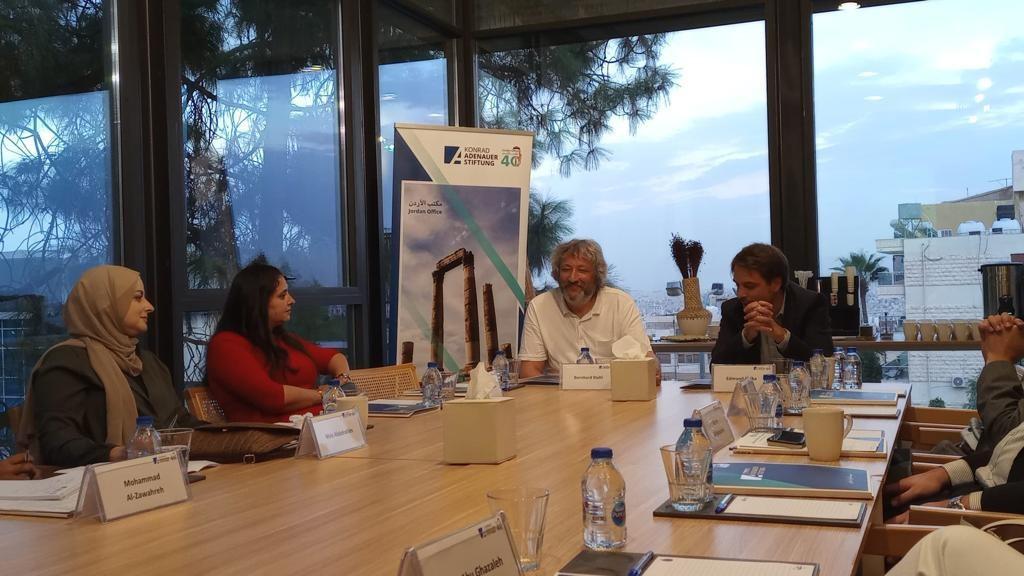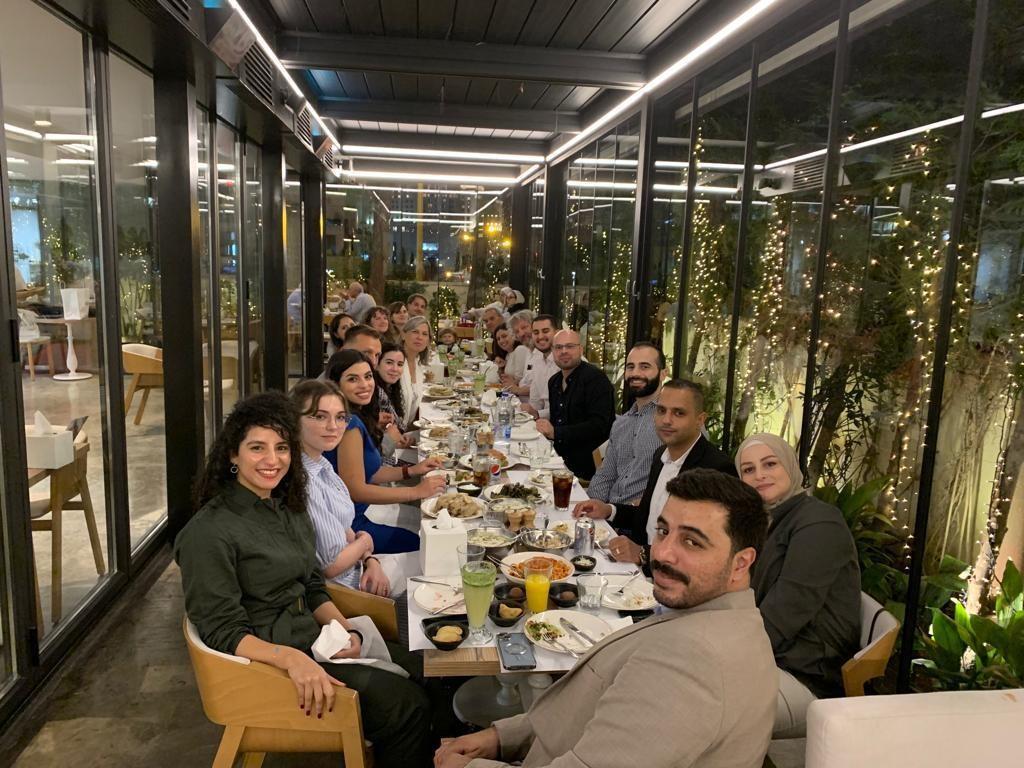The dialogue seminar was held in the context of the celebrations of the 70th anniversary of diplomatic relations between Jordan and Germany in 2023. The Jordan Office of the Konrad Adenauer Foundation has been actively fostering discussions regarding the geopolitical positioning of both nations, their roles not only in the Middle East but also on the global stage, as well as identifying promising areas for collaboration. As of now, Germany finds itself in the midst of adapting to significant shifts. The Russian attack on Ukraine in February 2022 prompted the Federal Republic to advocate for a “Zeitenwende,” symbolizing a pivotal moment in its foreign and security policy. This shift encompasses increased funding for the German Army and a broader commitment to assume a more substantial role in global politics.
The seminar began with a welcome from Dr. Edmund Ratka, the Resident Representative of the KAS Jordan Office, who introduced Prof. Dr. Bernhard Stahl, a leading academic in the field of International Relations and the evening’s keynote speaker.
Stahl’s presentation delved into the intricate challenges faced by global governance and German foreign policy. He highlighted how foreign policy often grapples with issues such as underfunding, understaffing, and mismanagement, owing to the primacy that domestic policy enjoys. Furthermore, Stahl explained the analytical levels for comprehending foreign policy, categorizing them into the individual, societal and international system levels. The latter being especially favored by diplomatic services and the military, as it defines the realm of possibilities and constraints in foreign policy.
Towards the end of his presentation, Prof. Dr. Stahl underscored Germany’s yearning for stability. However, he emphasized that the sought-after stability is a relic of the past, and that in order to achieve change and progress, Germany must rethink its own foreign policy as well as adapt to the new world order.
After the presentation, Dr. Edmund Ratka facilitated a lively discussion that was met with a variety of topics. These included the origins of the core norms of the international order, the Jordanian perspective on Germany’s position in the Middle East, and the intricacies surrounding conflict anticipation, especially with regard to the Israeli-Palestinian Conflict.
We extend our sincere gratitude to all participants who joined us and special thanks to Prof. Stahl!








